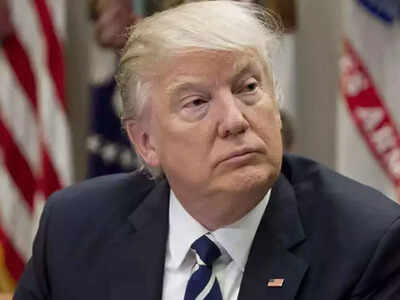Once again, Donald Trump, the former President of the United States who is seeking re-election, has raised the topic of India's imposition of substantial taxes on specific American goods, particularly focusing on the iconic Harley-Davidson motorcycles. He has issued a caution that should he secure victory in the upcoming 2024 presidential elections, he plans to enforce corresponding duties on Indian products.
This marks not the initial instance of Trump addressing the elevated import tariffs implemented by India on certain items. In 2018, Trump referred to India as a "tariff king." In May 2019, he terminated India's preferential market access within the framework of the Generalized System of Preferences (GSP) arrangement, citing India's failure to provide equitable and reasonable market access to the United States.
Following Trump's critique, India reduced the customs duty on premium imported motorcycles from 75% to 50%. Additionally, Trump had also drawn attention to the increased Indian tariffs on American whiskey.
During an interview with Larry Kudlow on Fox Business News, Trump expressed his disapproval of India's heightened tax rates, characterizing them as notably excessive.
In the conversation, the former president elaborated, "Another aspect I want to highlight is the idea of a reciprocal tax. India has consistently applied substantial tariffs, particularly evident in the situation involving Harley-Davidson. I raised questions about how well Harley-Davidson could perform in a market like India. The response was unfavorable due to the exorbitant tariffs—ranging from 100 percent to as much as 200 percent."
Continuing his explanation, he elaborated, "In essence, motorcycles manufactured in India enter our nation without encountering any taxes or tariffs. However, when we export Harley-Davidson motorcycles, they are met with excessively high tariffs that hinder business opportunities. Upon my inquiry, their suggestion was for us to establish a manufacturing facility in India, thereby sidestepping these tariffs. I challenged this proposal, deeming it counter to our interests. While I addressed this matter assertively, it's crucial to acknowledge India's substantial economic influence. Similarly, Brazil also imposes notable tariffs. Even from individuals like a senator from Pennsylvania whom I hold in high regard, I encountered resistance. I posed a fundamental question: Given that India imposes a 200 percent fee on our products while we impose no tariffs on theirs, should we respond with a 100 percent tariff in return? The consensus was negative, as it would be incongruent with the principles of free trade. This conversation underscores a significant concern."
Expanding on the matter, Trump clarified, "Should India decide to impose tariffs on us, my strategy involves responding in kind. This might be seen as a form of retaliation or using a distinct label. When faced with their levies, we would reciprocate."
The ex-president, currently navigating through a range of legal proceedings and accusations, is at the forefront of the Republican presidential primaries. Prominent nationwide surveys indicate that he secures more than half of the GOP's votes.





.jpg)
